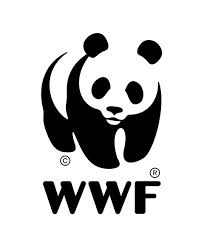New Program Could Put an End to Global Environmental Destruction for Food Production
September 24, 2024 /3BL/ - Codex Planetarius and the 1% solution, kicked off today by World Wildlife Fund’s Markets Institute, aims to rewrite the future of food production by supporting the growing demand for globally traded food while minimizing the negative environmental consequences. When fully developed and launched, Codex Planetarius will:
- Provide a baseline for environmental performance in global production and trade of food and soft commodities.
- Inform regulatory guidelines for governments and global trade that would apply to international trade agreements, eventually to be adopted by entities like the World Trade Organization.
- Provide much-needed data to improve supply chain transparency and traceability, allowing retailers and consumers to know exactly where and how their food was produced.
The production of food has the largest impact of any human activity on the planet, responsible for 70% of biodiversity loss and up to 35% of global GHG emissions. Simultaneously, climate change is negatively impacting food production – by 2050, global crop yield could decline up to 30%. Increases in population and per capita income, accompanied by dietary shifts, exert even more pressure on the natural landscape and its ability to regenerate resources.
“Over the last 30 years, we’ve seen immense effort and money poured into enacting voluntary standards for specific commodities, countries, or regions. It’s hard to hear, but this strategy has ultimately failed to reduce the global impact of food production. And that’s coming from someone who has led and championed these strategies throughout my career,” said Jason Clay, senior vice president and executive director of WWF’s Markets Institute. “It’s time to wake up and change course. Instead of rewarding the best producers to improve, we must find a way to transform the least efficient producers; these producers are responsible for the lion’s share of environmental degradation, but they have historically been ignored in the conversation.”
To support these revolutionary improvements, WWF is proposing, alongside Codex Planetarius, a “1% Solution,” which would add a 1% environmental service payment to the price of food exports. For consumers, a 1% increase in raw material prices would have an insignificant effect on the price of finished goods. But worldwide, the 1% environmental service payment would be enough to address the most significant impacts of producing food. For example, in 2022, rough estimates of the 1% Solution funding generated by the export of only five commodities (beef, hides, corn, cotton, and soy) could have been $780 million for the US and $550 million for Brazil. In actuality, the total would be far greater, supplying new funds for every food-producing country in the world.
While the program is ambitious, there is precedent. In 1963, a pioneering set of global food safety standards, known as Codex Alimentarius, was established to set minimum health and safety standards for food globally. Codex Planetarius will build on Codex Alimentarius' example, protecting the health and safety of the renewable natural resources used to produce food and soft commodities.
As the first step, Codex Planetarius is engaged in a multiyear proof-of-concept phase, which will include pilot projects in a handful of selected exporting and importing countries. This work will address outstanding questions and generate the data necessary for Codex Planetarius to be introduced, initially through bilateral trade agreements and then through multinational organizations.
###
Media Contacts
Susan.McCarthy@wwfus.org | Lorin.Hancock@wwfus.org
About WWF
WWF is one of the world’s leading conservation organizations, working in nearly 100 countries for over half a century to help people and nature thrive. With the support of more than 5 million members worldwide, WWF is dedicated to delivering science-based solutions to preserve the diversity and abundance of life on Earth, halt the degradation of the environment and combat the climate crisis. Visit http://www.worldwildlife.org to learn more and keep up with the latest conservation news by following @WWFNews on Twitter and signing up for our newsletter and news alerts here.

